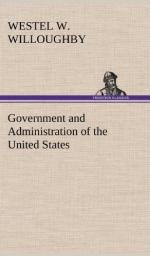_#III. Charter Colonies.#_—Colonies under this form of government were so called from their possessing constitutions for their general political government. These written constitutions were charters obtained from the King, in which were granted to the people of the colony certain privileges and rights of self-government which the English government could not justly take away from them. One of the unjust acts that did much to arouse the colonists to resistance, was the attempt of the English government in 1774, to annul the charter of Massachusetts by the Regulation Act. In this act was contained a precedent that (as Curtis says) “justly alarmed the entire continent, and in its principle affected all the colonies, since it assumed that none of them possessed constitutional rights which could not be altered or taken away by an act of Parliament.” The charters were very liberal, granting almost entire self-government. As in the royal colonies, the executive was a governor, and the law-making branch a legislature of two houses.
In Massachusetts the governor was appointed by the Crown, and had a veto power. The Council or upper branch of the legislature was chosen annually by the lower house, but the governor had a right of veto on their choice. The lower house was elected by the people. In Connecticut and Rhode Island the governor, council, together with the assembly were chosen annually by popular vote, and all officers were appointed by them. In these two the governor had no right of veto, and the laws before going into execution did not require the royal approval.
Seven of the original colonies began under proprietary governments—New York, Pennsylvania, Delaware, North and South Carolina, Maryland and New Jersey. Of these, four—New York, New Jersey, North and South Carolina—became eventually provincial colonies, and Maryland was at one time a proprietary.
Three of the colonies, Massachusetts, Connecticut and Rhode Island, were settled under charters that were never surrendered. Three others, Virginia, Georgia and New Hampshire possessed charters for a while, but eventually became royal colonies.
Notwithstanding these diversities of government that have been pointed out, there were many features common to all the colonies. All considered themselves dependencies of the British Crown. All the colonists claimed the enjoyment of the privileges and rights of British-born subjects, and the benefit of the common law of England. The laws of all were required to be not repugnant to, but, as nearly as possible, in conformity with the laws of England. In all the colonies local legislatures existed, at least one branch of which consisted of representatives chosen by the people.
The general condition of the colonies at the time of the outbreak of the Revolutionary War, so far at least as concerns their governments, has now been given. What were the grounds upon which the colonists justified their resistance to the acts of English government?




